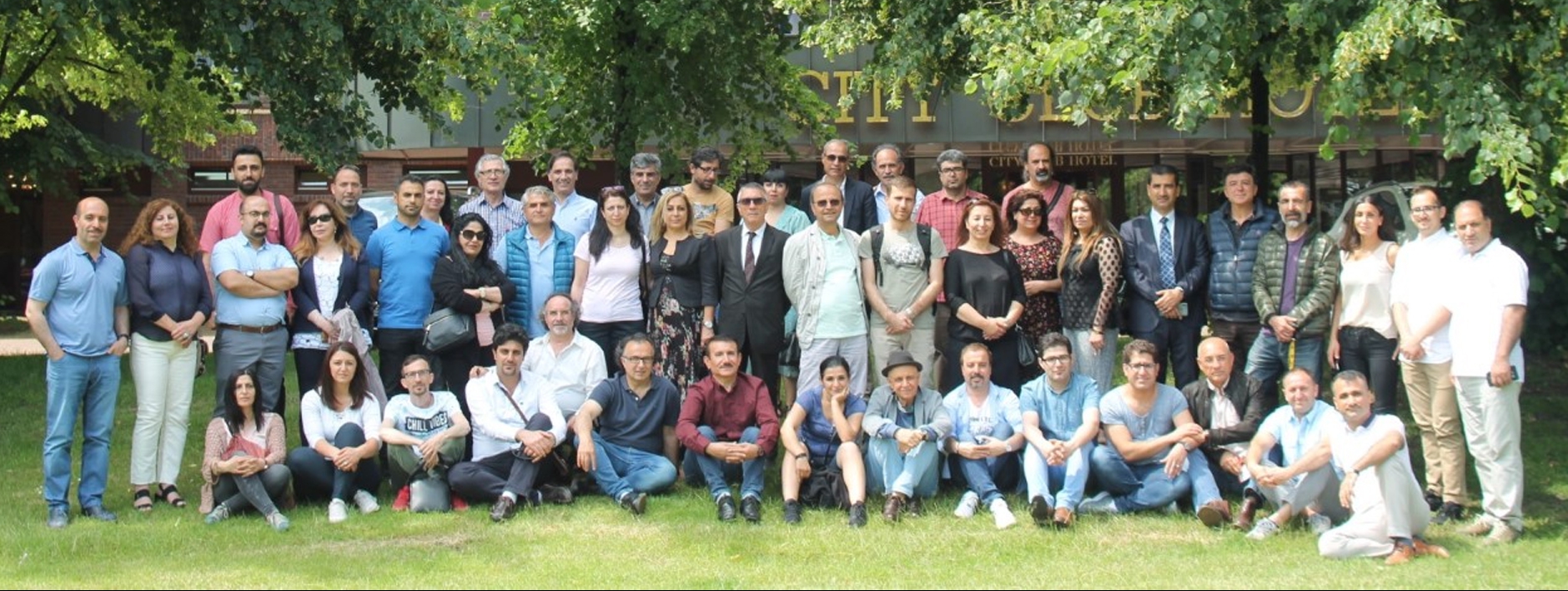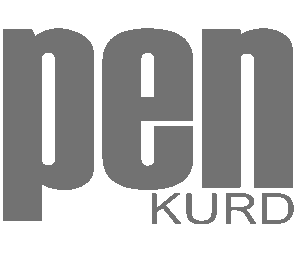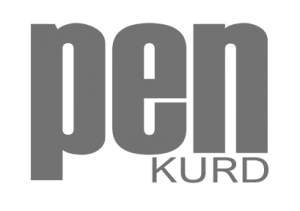History of the Kurdish Pen Centre
By Bêrîvan Doskî
Kurdish PEN (Navenda PEN a Kurd) is one of over 140 Centres that are members of PEN International – an important and diverse community of writers all over the world.
It was vital for the global human heritage of cultures and literatures to include Kurdish literature, language and culture, which have faced severe oppression for almost a century. The regimes ruling over the Kurdish homeland since Kurdistan was divided between Iraq, Iran, Syria and Turkey never gave Kurdish heritage the chance to develop. Furthermore, there has been a strict ban on education and learning the Kurdish language, especially in Turkey, meaning that the language is in danger of extinction in North Kurdistan. Faced with such severe conditions, Kurdish intellectuals in diaspora communities were dedicated to working to form a Kurdish PEN Centre as a member of International PEN, to ensure that their culture, language and literature are represented as part of humanity’s common conscience.
It is well known that many Kurdish writers and intellectuals were refugees and/or exiled from Kurdistan, because of the dangerous conditions they were living in as a result of oppression by the regimes ruling Kurdistan in Turkey, Iran, Iraq and Syria. As a result of the hard work of a number of Kurdish writers and intellectuals, especially Hüseyin Erdem and his wife, Emîne Erdem, the foundations for a Kurdish PEN were laid in 1980.
After much hard work and self-sacrifice, the general assembly at the PEN International Conference in Cambridge, in April 1988, discussed the Kurdish intellectuals’ application to establish the Kurdish PEN Centre, and it was unanimously approved as a member. A lot of work was then done in Germany to establish and run its office, and, in the spring of 1990, the German Regional Court and Tax Office of Cologne officially approved the establishment of the Kurdish PEN Centre. The intellectuals and writers who did much of the initial work to establish the Kurdish PEN Centre and officially register it in the German courts are: Hüseyin Erdem, Emîne Erdem, Evdirehman Neqşîbendî, Haydar Işık, Hüseyin Kartal, Mostoo Xêro, Riza Topal, and Yayla Mönch-Bucak. They must always be remembered.
Hüseyin Erdem was president of Kurdish PEN between 1990 and 1993, when he resigned from his duties for health reasons. As a result, a new Board was elected and remained in office for three years. Unfortunately, the Board was not able to work actively during this time and a deep disagreement emerged over issues at the core of how Kurdish PEN was managed. As a result, after the secretary general resigned, relations with the financial officer were cut and the Board was dissolved. The head of the Board reported this in a letter to PEN International on 21 October 1996, leading it to take the decision, at its Congress in Guadalajara, Mexico, on 12 November 1996, to make Kurdish PEN dormant.

Following this crisis, some members of Kurdish PEN took on intellectual responsibilities and held an internal meeting in Berlin, Germany, on 1 February 1997. This led to the election of a new Board, with Haydar Işık as president and Dr Zerdeşt Haco as secretary general. The new Board – which could be called Kurdish PEN’s revival Board – began working closely with its members, PEN International and many other PEN Centres. As a result of this extensive work, Kurdish PEN representatives participated in the PEN International Congress in Edinburgh, UK, in August 1997. At this Congress, Kurdish PEN became an active member of PEN International once again, and doors began to reopen for Kurdish intellectuals to continue their work as part of the PEN International community. This newly elected Kurdish PEN Board continued its work in earnest and, at its Congress in Berlin on 13 February 1999, Kurdish PEN’s former secretary general Dr Zerdeşt Haco was elected its president. He continued his duties until the 8th Kurdish PEN Congress, held in Diyarbakir in 2013.
It is important to mention that some key members have put great effort and determination into Kurdish PEN’s work. With a lot of sacrifices made in the form of personal time, money and effort, Kurdish PEN stood tall and kept going, year after year, greatly expanding its membership and activities. Two of the members who were most dedicated to Kurdish PEN during those years are Dr Zerdeşt Haco and Dr Bêrîvan Doskî, who are still involved in the Centre’s work.
With a lot of sacrifices made in the form of personal time, money and effort, Kurdish PEN stood tall and kept going.
The management Board and the majority of Kurdish PEN members were living abroad in diaspora communities, due to the oppression they were facing back home. Nevertheless, they hoped they would one day be able to return to a better situation, in which they were free to develop their language, culture and literature without fear of persecution. At the Kurdish PEN Congress on 26 March 2000, it was decided that branches of Kurdish PEN would be opened at home, in all parts of Kurdistan, wherever possible. Efforts were made across the Kurdish territories to act on this important decision.
In the meantime, PEN International took a very important decision at its Congress in Tromso, Norway, to hold a conference in the Turkish city of Diyarbakir (Amed in Kurdish). The event was to be held in support of Kurdish linguistic rights, under the auspices of PEN International and UNESCO, with the participation and cooperation of both Kurdish PEN and Turkish PEN. After a lot of hard work, the international conference was held on 20–25 March 2005. It featured a large number of literary events, which were attended by many Kurdish writers from North Kurdistan and other areas.
When Saddam Hussein’s brutal regime was toppled in 2003, and the Justice and Development Party (AKP) was on the rise in Turkey, many parts of Kurdistan were showing signs of tolerance towards Kurdish culture and heritage at the start of the millennium, especially in the north and south. Kurdish PEN’s management Board decided – after many discussions with members and visits to Diyarbakir – to hold its 8th Congress in Diyarbakir/Amed with the intention that the majority of the management Board should be from North Kurdistan (in Turkey). That Congress was held in 2013 and, as the first Kurdish PEN Congress to be held at home, it represents a significant turning point in the Centre’s history.
The Congress resulted in the election of a new Board, with Şêxmûs Sefer becoming president, Dr Bêrîvan Doskî vice president, Kakşar Oremar secretary general, and Mem Mîrxan financial officer. Other members of the management Board were: Dilşa Yûsûf as chair of the Women Writers Committee; Îrfan Babaoglu as chair of the Writers in Prison Committee; Omer Fîdan as chair of the Writers for Peace Committee; and Mem Mîrxan as chair of the Translation and Linguistic Rights Committee. At this Congress, Kakamen Botanî, was elected as an honorary president alongside the existing one, Sînem Bedirxan.
That Congress was held in 2013 and, as the first Kurdish PEN Congress to be held at home, it represents a significant turning point in the Centre’s history.
The new Board decided it was necessary to build strong contacts with Kurdish writers in all parts of Kurdistan and the diaspora, and to form branches in parts of Kurdistan and abroad. This was achieved, with representatives for these branches identified and assigned duties. During the three years until the next Congress, a number of important events and meetings were held in almost all parts of Kurdistan, and the work of Kurdish PEN was much appreciated among Kurdish writers, as well as by PEN International.
Three years later, on 20 May 2016, Kurdish PEN held its 9th Congress in Diyarbakir/Amed with the participation of more than 100 members, resulting in the election of a management Board of 11 people. The Congress also approved the co-president system, strengthening representation of the four parts of Kurdistan, Kurdish writers abroad, the major Kurdish dialects, and women writers. Dr Bêrîvan Doskî and Osman Özçelik were elected co-presidents, Omer Fîdan secretary general, and Îrfan Babaoglu chief financial officer. Professor Cebar Qadir – followed by Omer Fîdan – was elected chair of the Writers for Peace Committee; Dilşa Yûsûf chair of the Women Writers Committee; Kakşar Oremar, – followed by Abdulah Hîcab – chair of the Writers in Prison Committee; Netîce Altûn Demîr chair of the Translation and Linguistic Rights Committee; and Fereydûn Saman head of Kurdistan Writers’ Relations. The three former PEN Centre presidents, Hüseyin Erdem, Dr Zerdeşt Haco and Şêxmûs Sefer, were recognised as honorary presidents of Kurdish PEN.
By the end of 2015, there were significant developments in Turkey, but also in all parts of Kurdistan. Shortly before Kurdish PEN’s 9th Congress, on 15 July 2016, the conflict between the Turkish government’s two allied powers came to a head in a military coup. This deepened the crisis within the Turkish state. Unfortunately for Kurdish people in Turkey, history repeated itself, and the situation became unbearable and extremely dangerous for Kurdish people, including writers, journalists and activists. During that time, all forces and parties in Turkey – not just the AKP – came together and agreed to pursue aggressive and destructive policies against the Kurds.
In the wake of a massive attack on Kurds, hundreds of Kurdish civil, cultural and linguistic organisations were closed down. Civilians, including journalists and writers who worked at these organisations, were arrested. Their members and executives were charged with serious crimes, thousands of Kurdish workers were dismissed, and the democratically elected heads of municipalities in Kurdish areas were forcibly removed from office and replaced with government appointees. Furthermore, thousands of Kurdish politicians and activists were imprisoned, teachers dismissed from office, and so it went on.
This undoubtedly had an impact on the work of Kurdish PEN in an atmosphere where its members and those of the Kurdish Writers’ Association were called ‘terrorists’. As a result, any activity carried out by Kurds – including linguistic and literary activity – was criminalised and classified as terrorist activity. Many members of Kurdish PEN were excluded from literary and intellectual activities and were legally pursued and imprisoned. Unfortunately, things have gone from bad to worse, and the shadow that this unbearable situation has cast in Kurdistan has had a severe impact on Kurdish PEN and its members.
Since emergency status was declared in the majority of Kurdish towns and cities, there have been several military attacks in civilian areas, displacing thousands of people, with hundreds killed and thousands arrested and detained. These military attacks by the Turkish army not only destroyed civilians’ homes and workplaces, they also targeted historic areas. The attacks extended into the heart of Diyarbakir/Amed, where the historic district (Sur of Amed) was completely destroyed. The Kurdish PEN office, which was in that part of the city, was also raided and all its documents and archive were destroyed.


